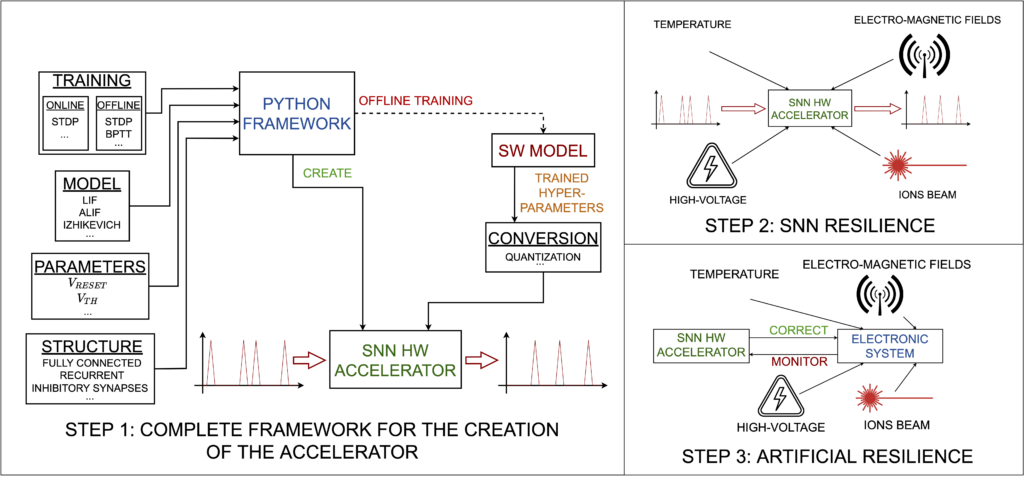Alessio Carpegna
Former Ph.D. Candidate
Politecnico di Torino,
Control and Computer Engineering Department
Alessio Carpegna was a Ph.D. Candidate in Artificial Intelligence at the Department of Control and Computer Engineering of Politecnico di Torino. His research was focused on Artificial Resilience and Neuromorphic Computing.
He is an Electronic Engineer, with a specialization in Electronic Systems. His main focus is on hardware architectures, design of hardware electronic circuits and software to interface them.
During his Ph.D., his work consisted in the development of hardware accelerators for Neuromorphic Systems. In particular he concentrated on Spiking Neural Networks (SNN), mainly targeting an FPGA implementation. The goal was to develop a flexible accelerator that can be used for edge computing in IoT and embedded systems. The choice of the FPGA as a target platform mainly depends on its high configurability. Moreover, it is a component which is generally available on many IoT devices. The developed accelerator can become part of a family of different hardware accelerators, all integrated on the same FPGA.
In the meanwhile he explored the field of Artificial Resilience, that consists in trying to detect a fault or malfunctioning and to learn how to make the electronic system more robust to it. He studied the problem from two different perspectives: on the one hand he performed a fault injection on the Spiking Neural Network itself, studying the impact on its accuracy and performance; on the other hand he considered an external architecture as the target for the fault injectionand uses Spiking Neural Network to detect the presence of the fault.
The goal was to join Artificial Resilience and Neuromorphic Computing to create an hardware accelerator for SNN that is resilient to faults and to use it to monitor an external electronic system to make it more robust to faults. This could help in reducing the costs of duplicating every component in a mission critical application.


